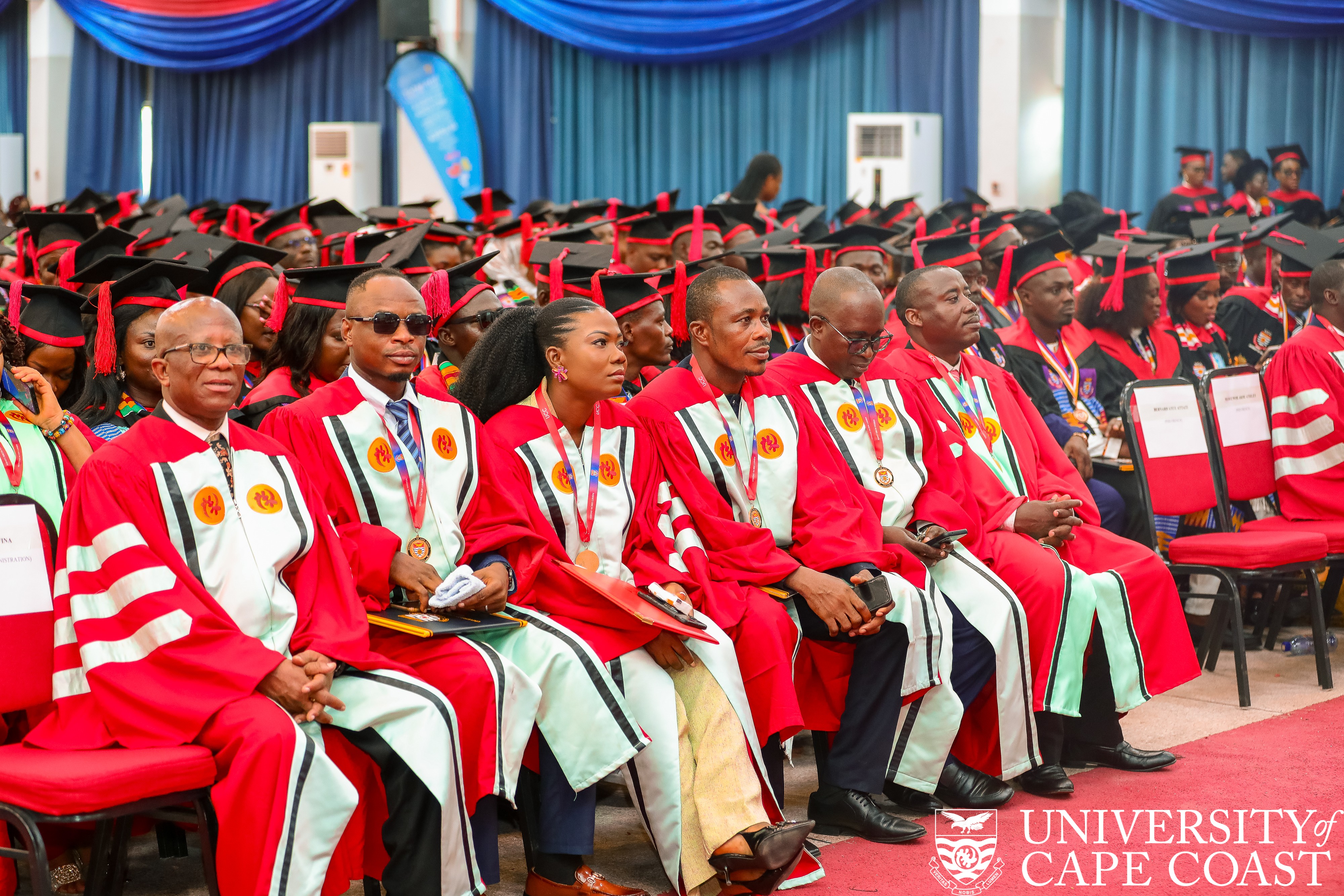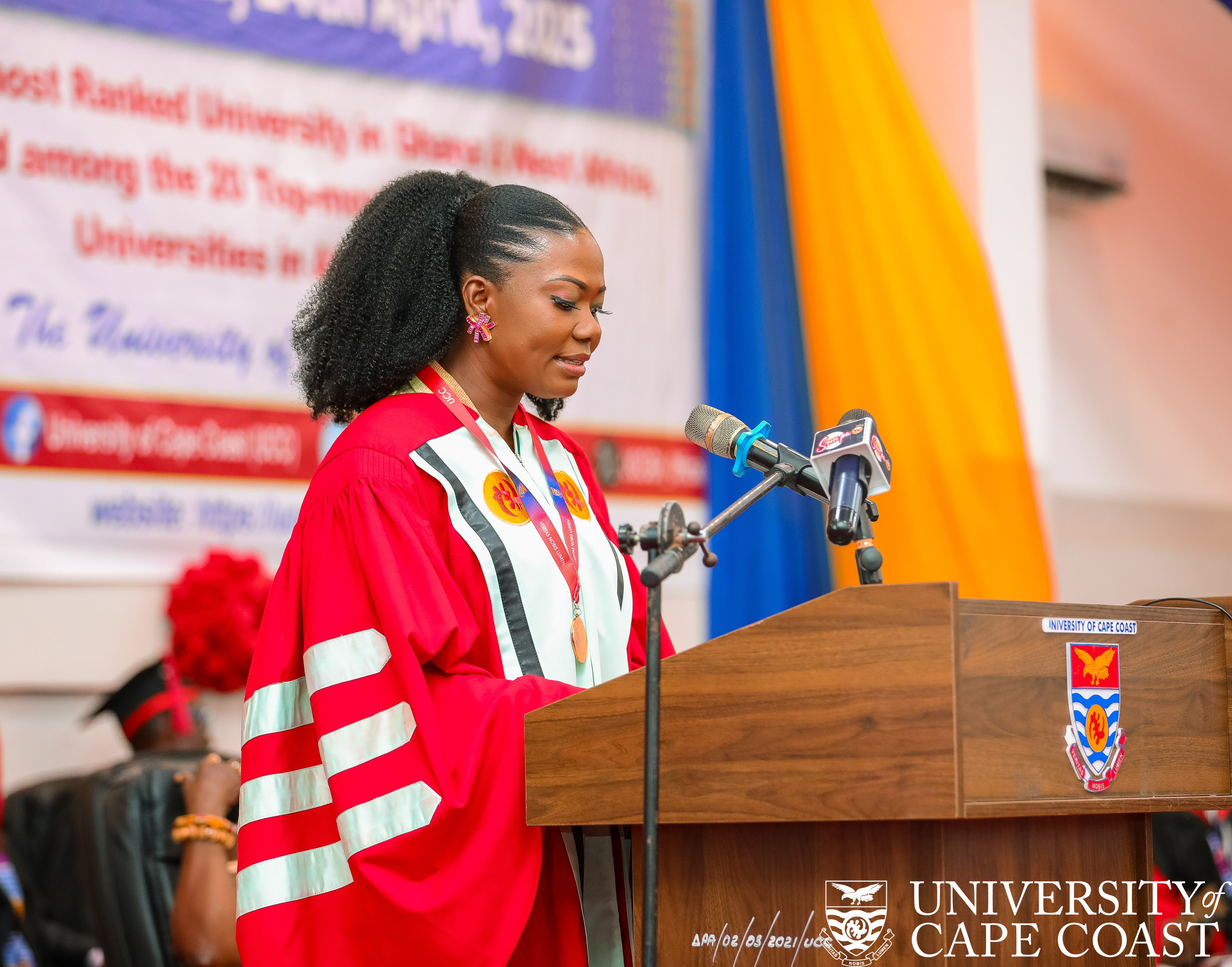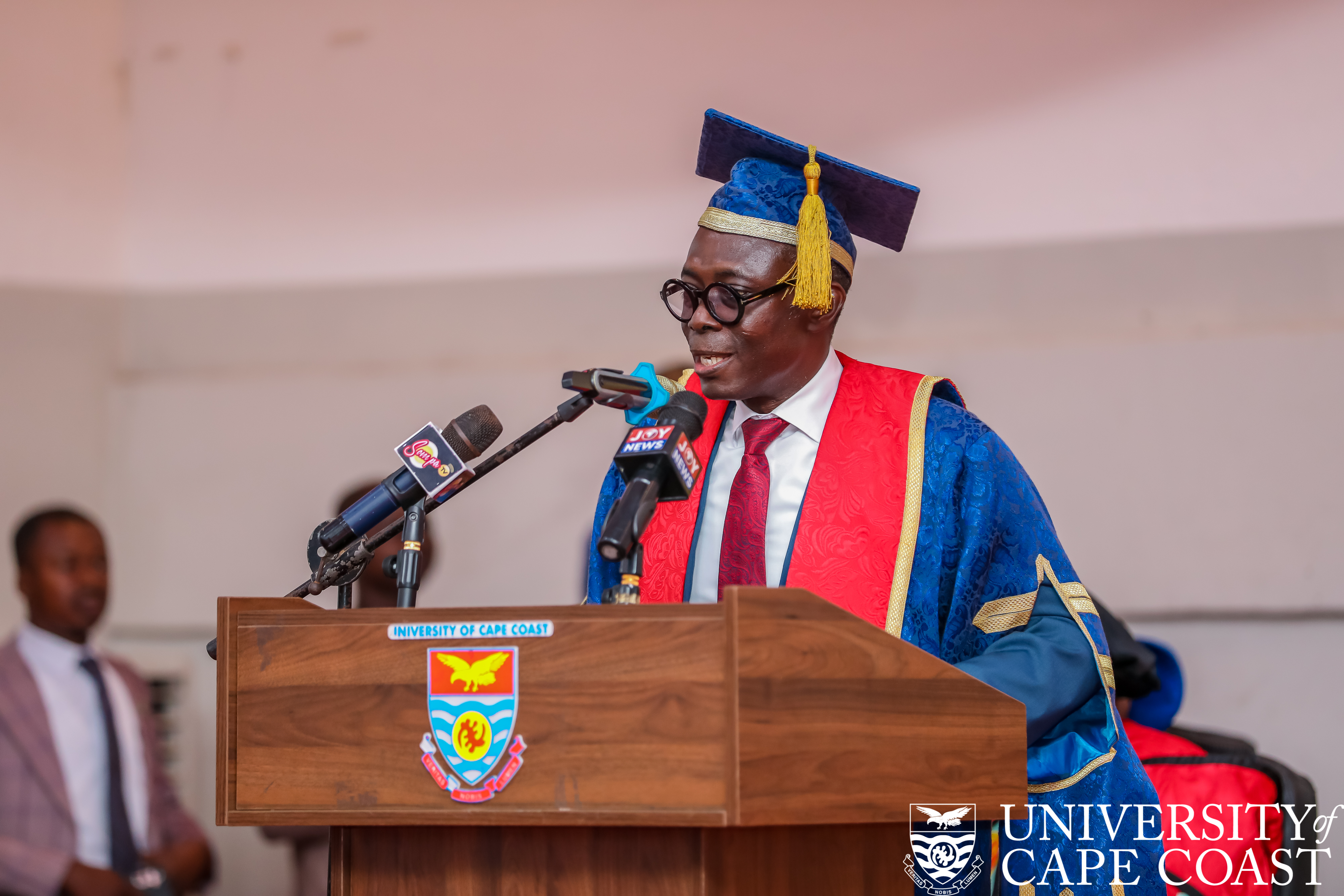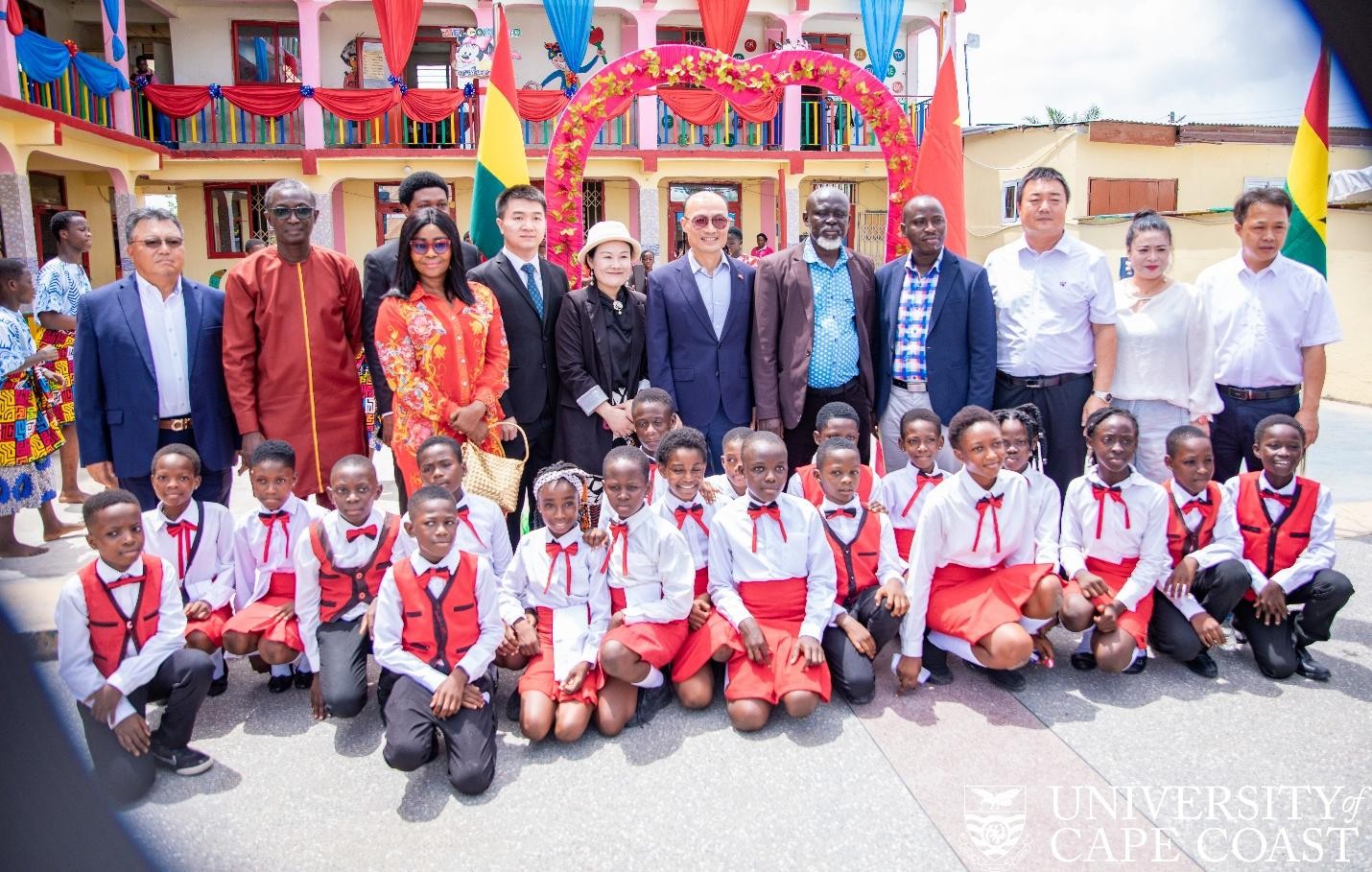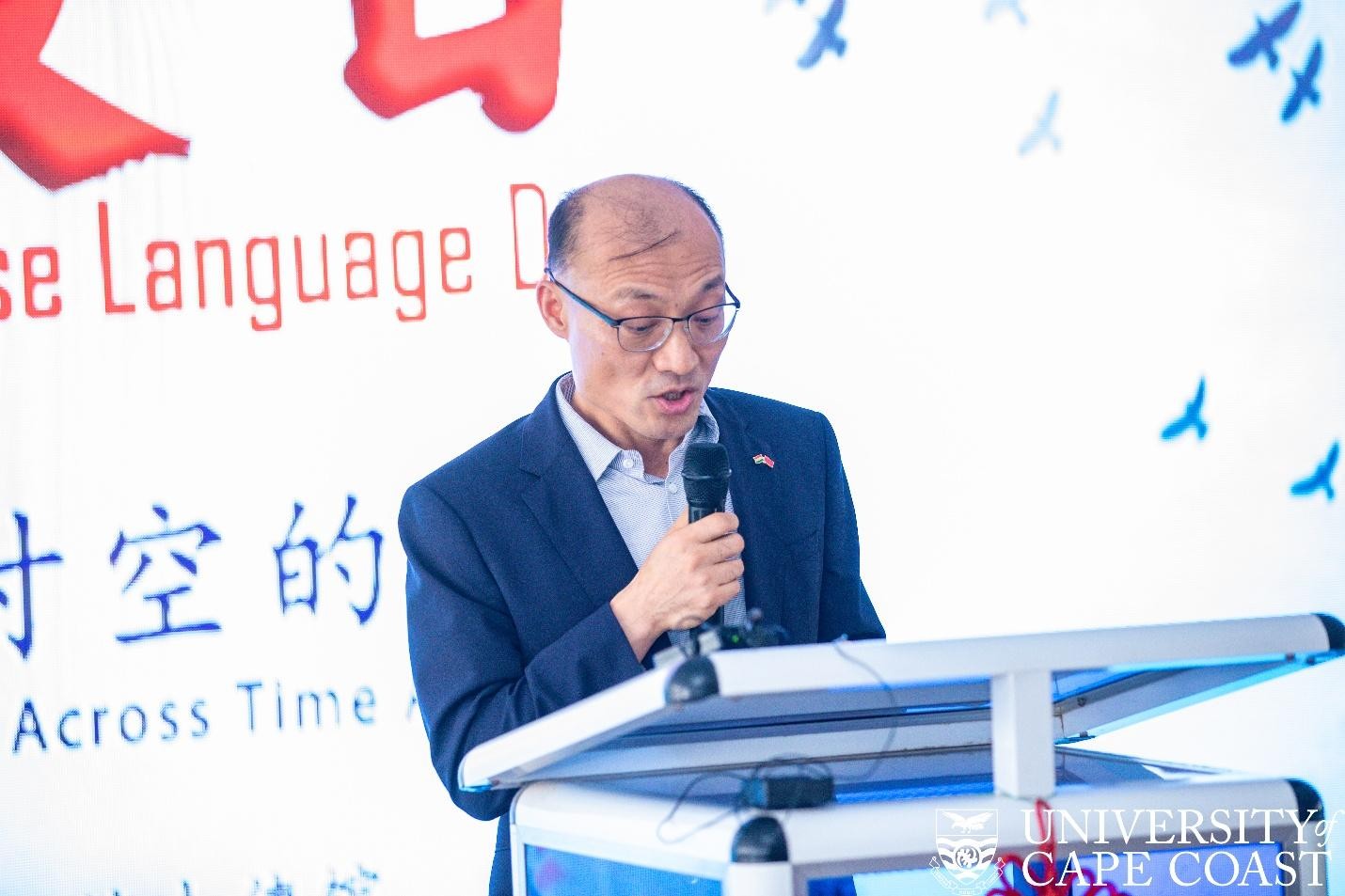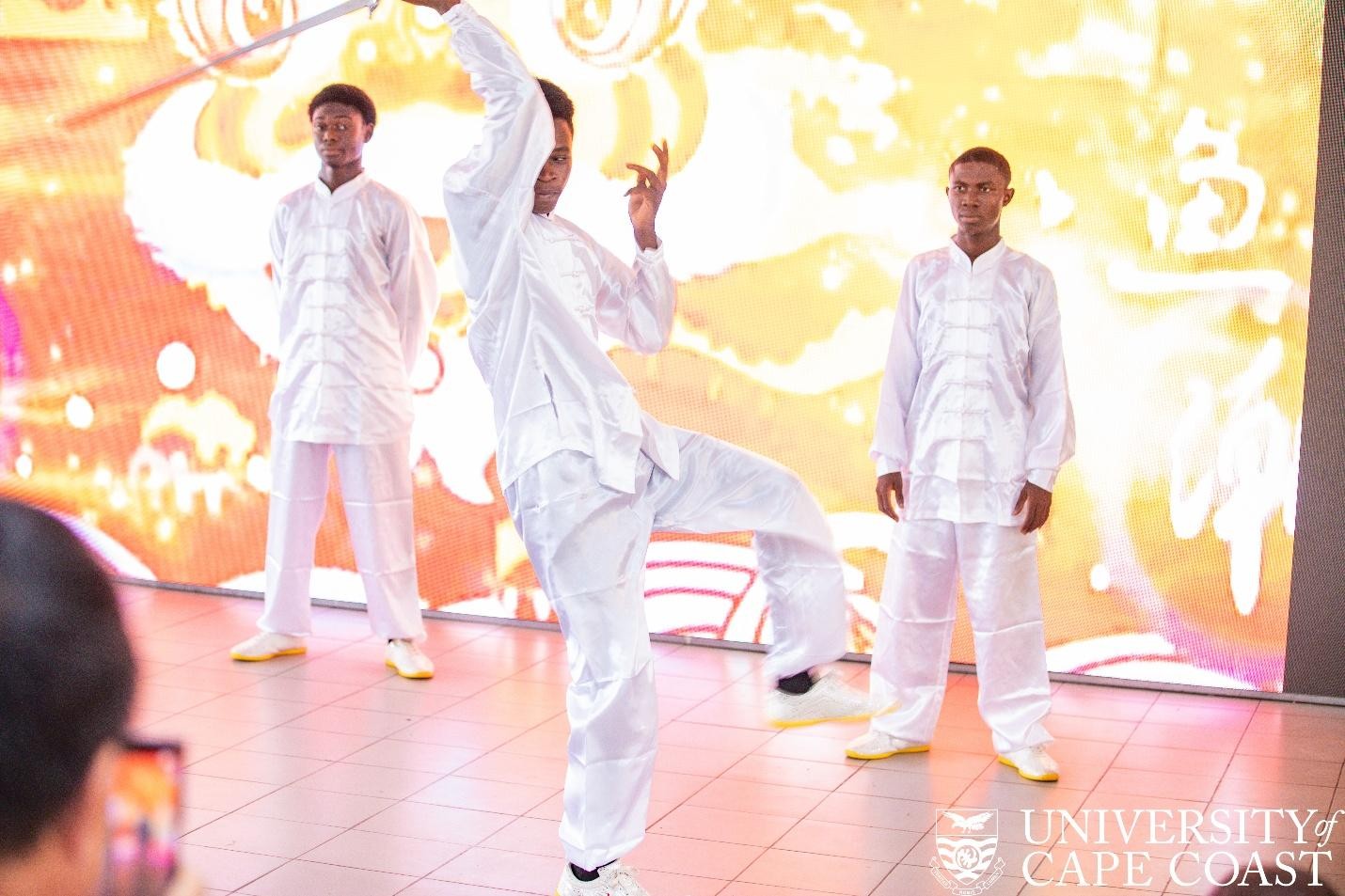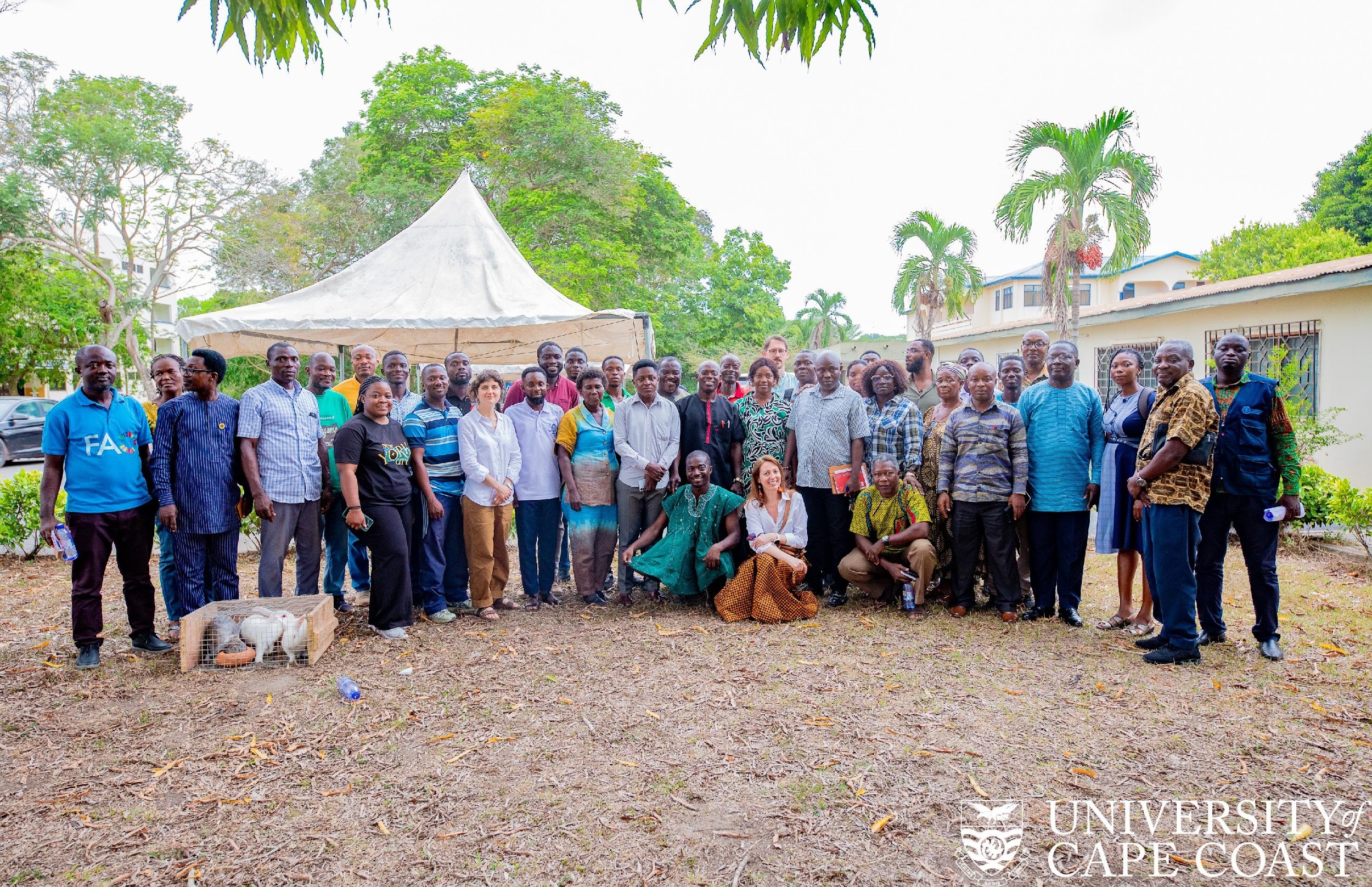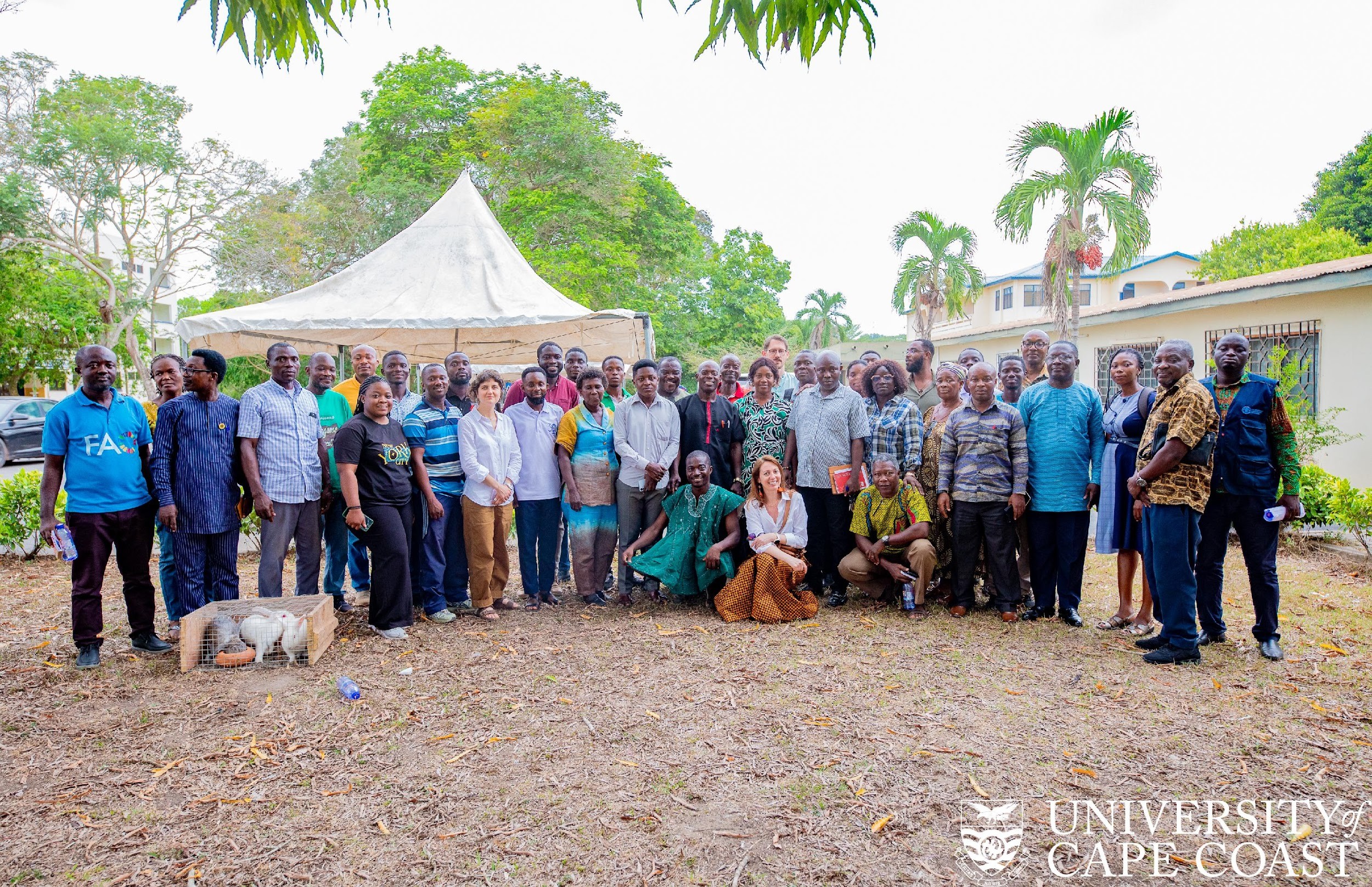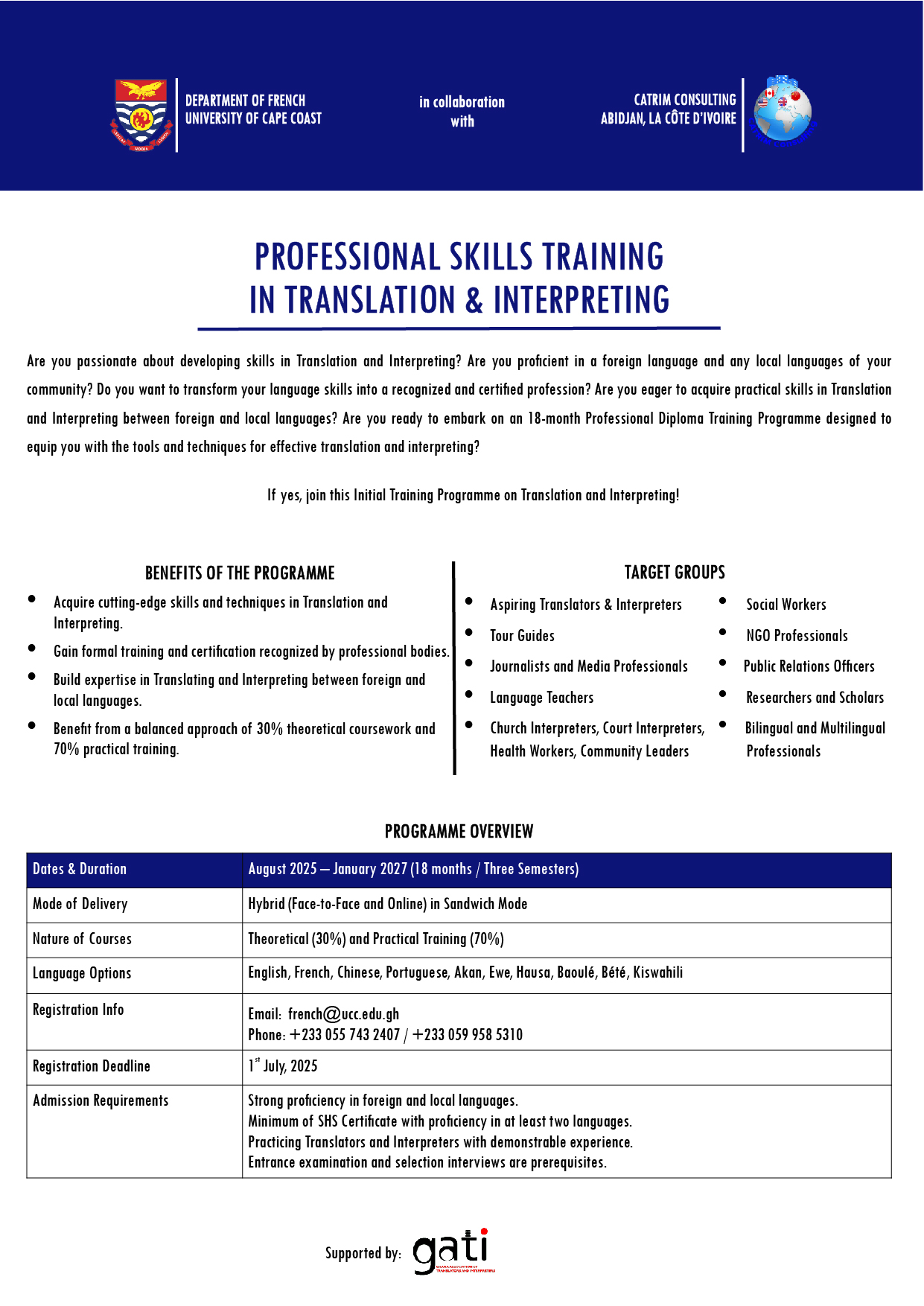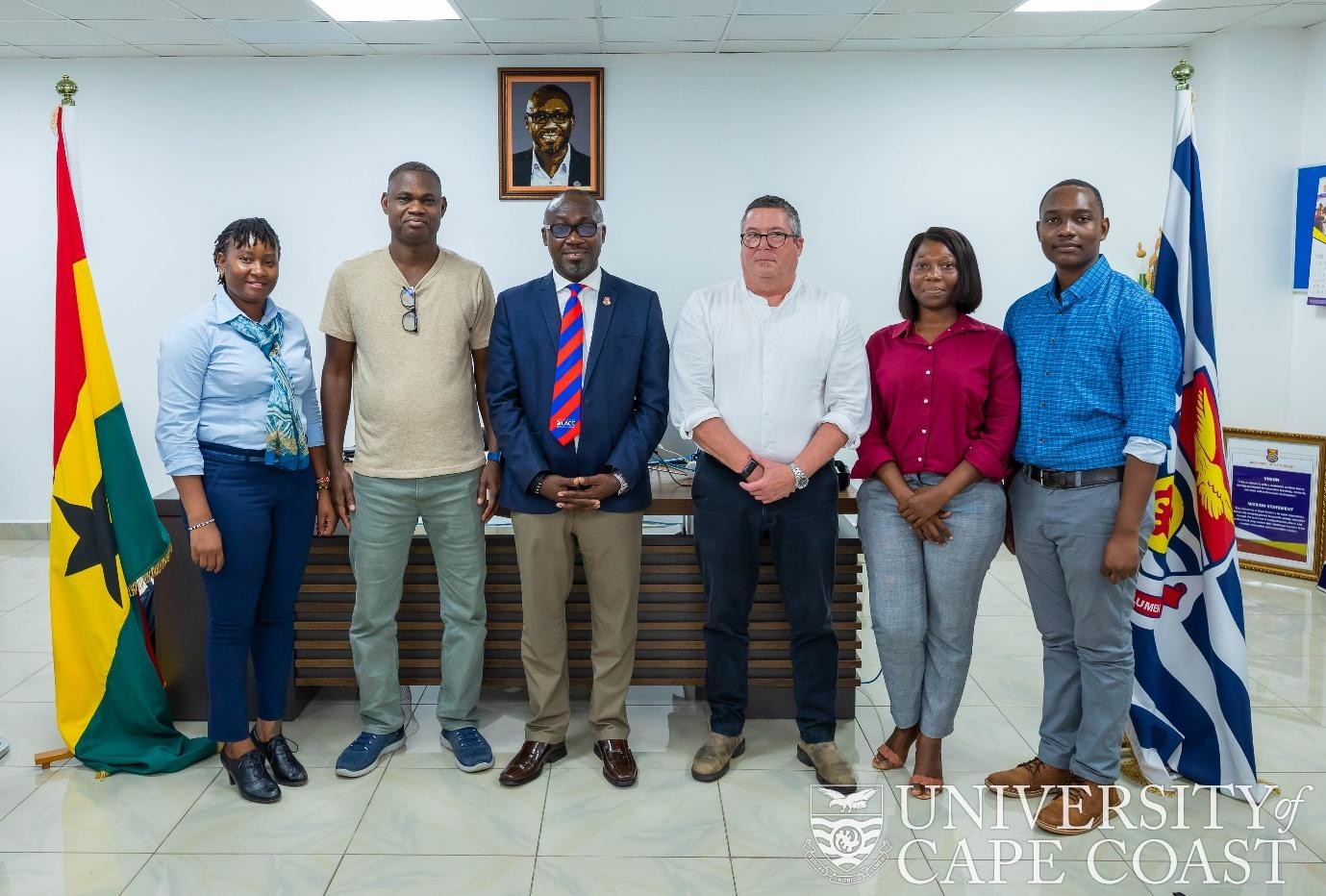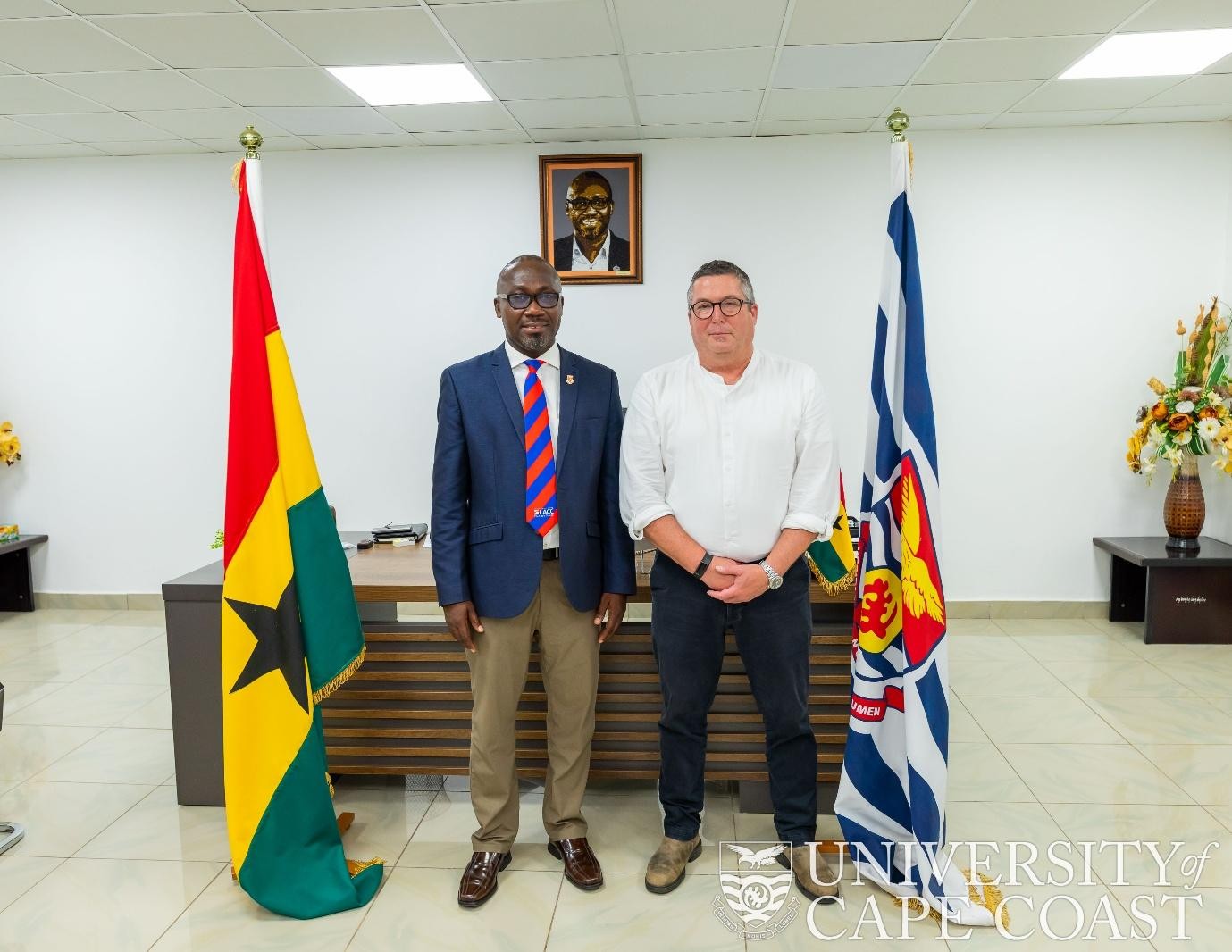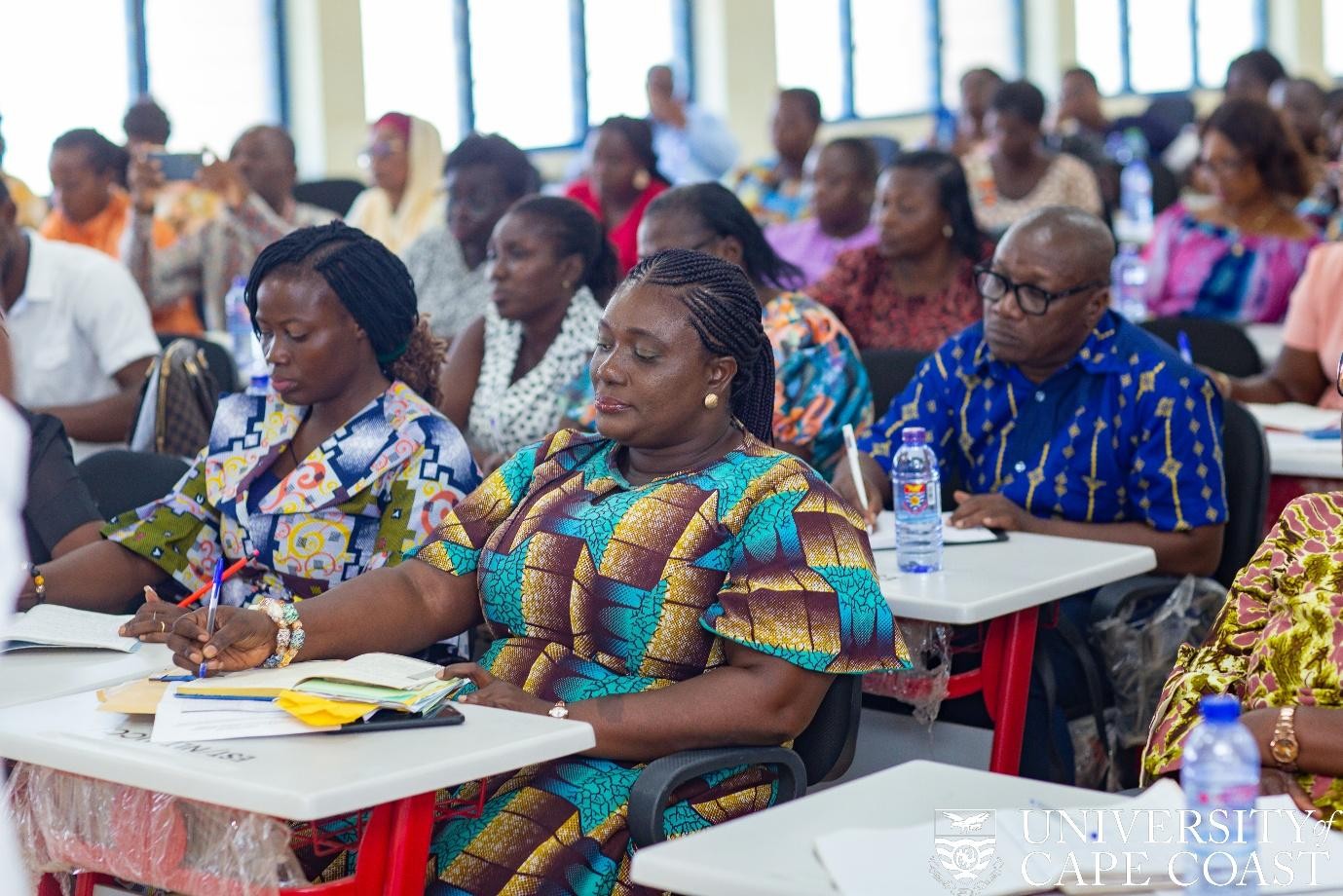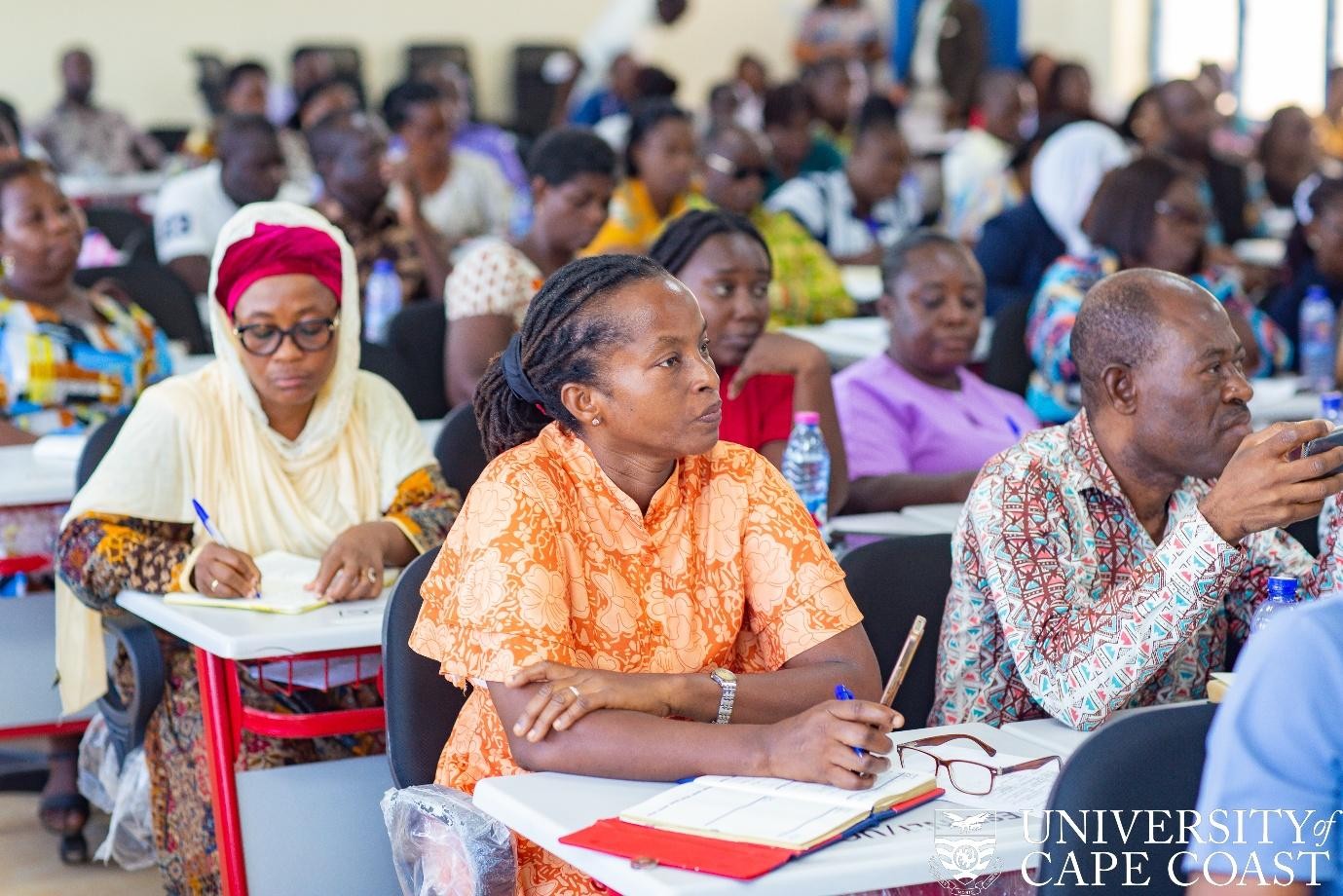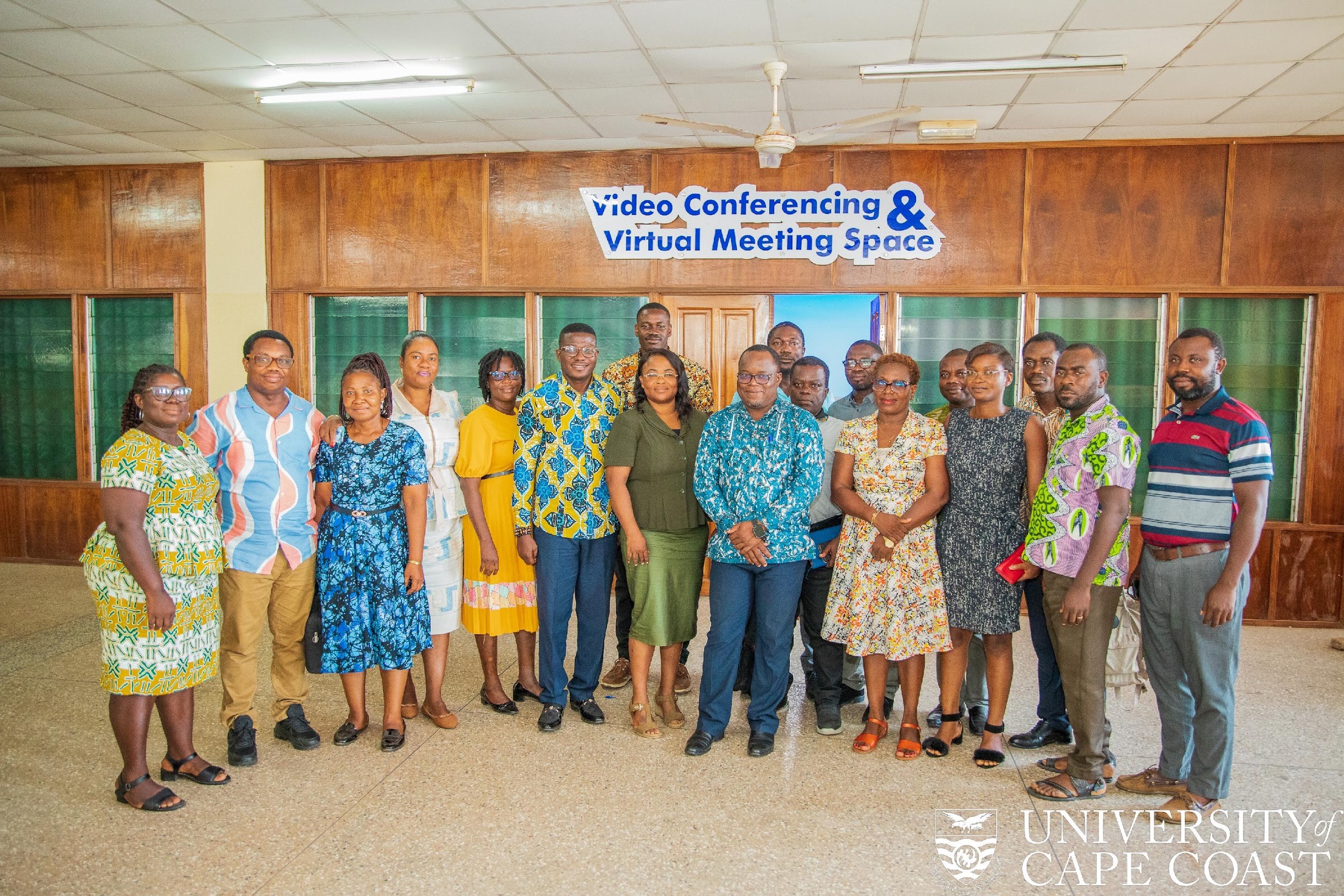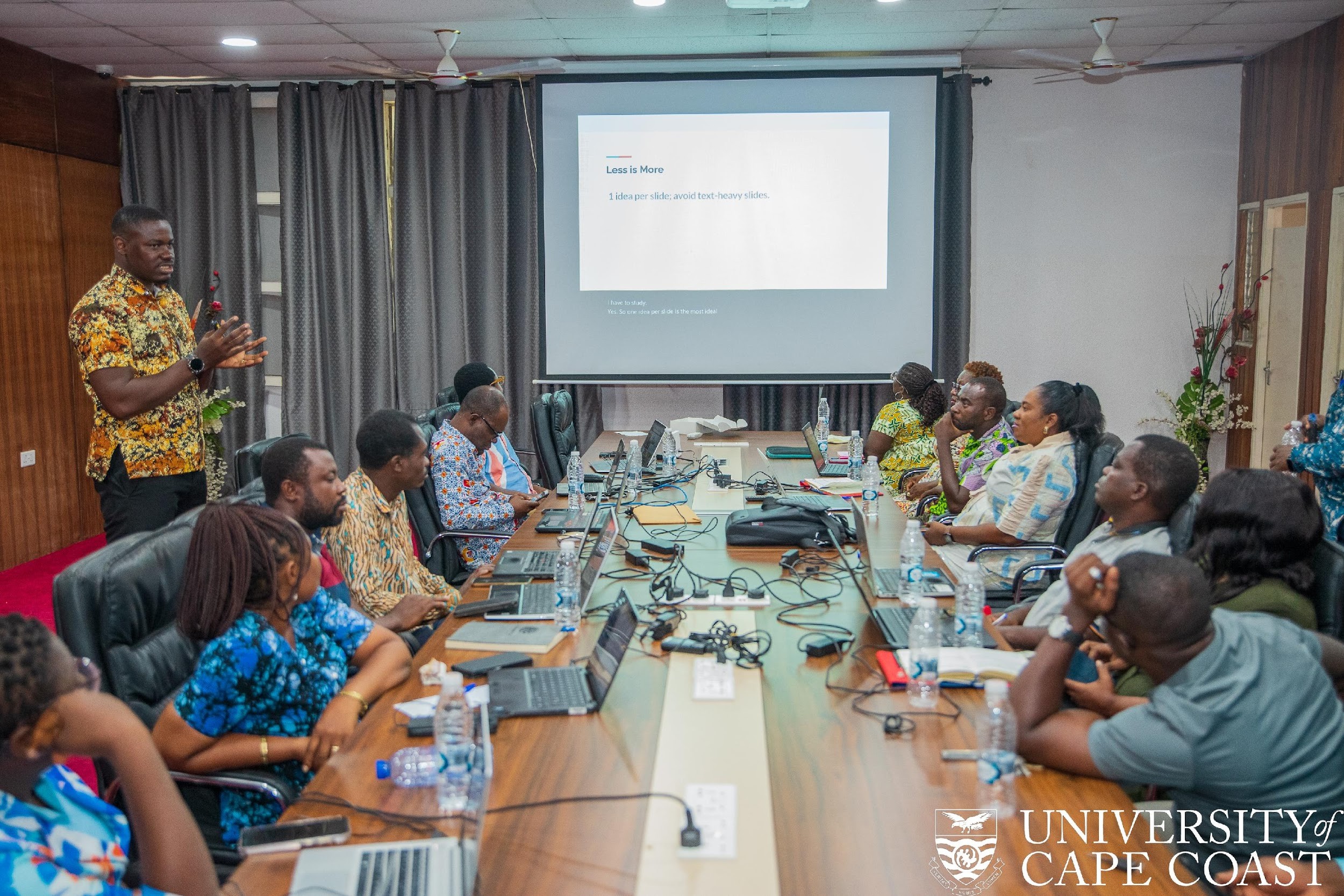The University of Cape Coast, UCC, has held its 57th congregation to celebrate students who have successfully completed various postgraduate programmes.
In all, 1,187 students, including 46 PhDs, 102 MPhil, 124 MA, 17 MCom, were celebrated for their academic achievements.
The rest were 3 Master of Nursing, 605 Master of Education, 64 Master of Business Administration, 184 Master of Science, and 42 Postgraduate Diploma in Education (PGDE).
Key among the personalities who graduated with the PhD was Dr. Kwabena Antwi- Konadu, the Manager of Campus Broadcasting Service, UCC, and Apostle Dr. Samuel Yaw Antwi,the immediate past Cape Coast Area Head of the Church of Pentecost and Board Chairman of Pent Media Centre.
Delivering his address, the Vice-Chancellor, Professor Johnson Nyarko Boampong, commended the students on their giant feat and urged them not to rest on their oars but to work hard in all spheres of life.
The Vice-Chancellor, Professor Johnson Nyarko Boampong, speaking at the congregation
He stated that hard work, resilience and dedication by the 2025 graduating class had yielded positive results.
The Vice-Chancellor urged the graduates to be good ambassadors of the University and endeavour to support their alma mater in whatever position they found themselves.
Prof. Boampong said that the University remained resolute to strengthen and expand post graduate education, and therefore, indicated that it would mobilize resources to foster strategic partnership and create an enabling environment that impacts research and postgraduate training.
“I wish to assure you that UCC will not relent in its effort to build a graduate education that meets the highest standards ready to serve in every sphere of life,” he continued.
Prof. Boampong paid glowing tributes to the Emelia and Sam Brew Butler Research Fund for supporting postgraduate students to produce cutting edge research to solve societal challenges.
The Vice-Chancellor admitted that UCC was facing challenges as regards funding to support research activities and appealed to stakeholders to support the research agenda of the University.
He advised the graduates to imbibe integrity ,respect and collaboration to overcome challenges and urged the students to be innovative and drive social impact, as they were entrusted with the University's legacy.
He urged them to prove themselves to the rest of the world as worthy intellectuals, ethical professionals and responsible graduates.
The Valedictorian, Dr. Justina Adams, who started Ph.D. (Business Administration) in January 2022, and completed in September 2024, said the education she and her colleagues had received was a great privilege and must not be taken for granted.
Special awards were given to deserving students.
Source: Documentation and Information Section

